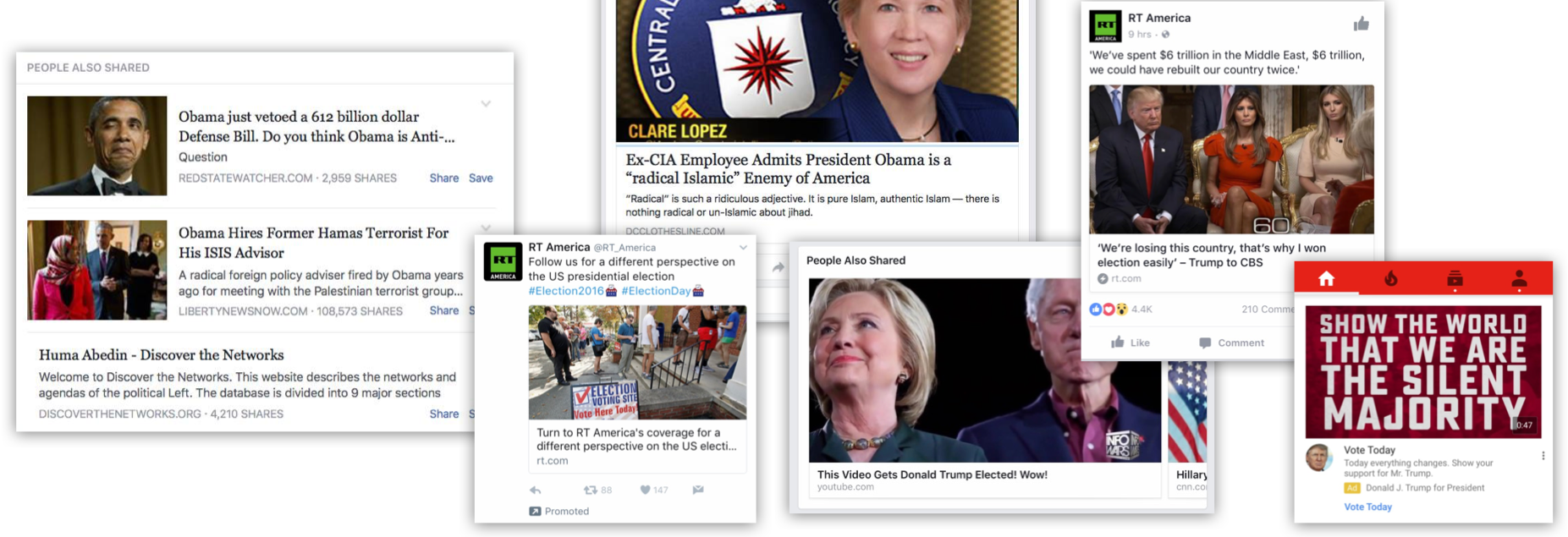Facebook needs to do some serious soul-searching after this election and improve the feed algorithm to reduce the propagation of destructive falsehoods. A post's ability to get a rise out of people is an insufficient test for greater feed visibility.
I understand the reluctance to play arbiter of truth, but as it stands the algorithm is already doing that by implying everything is true, and even amplifying it with things like post-click related content. It was cute when it was just your parents posting something innocuous that you could reply to with a snopes article, but now we see its eventuality.
Facebook has succeeded in making a super sticky product with a huge audience that feeds people highly relevant content. Kudos! Now it's time to enter the next phase of social software, and acknowledge that relevance is not enough. That with power comes responsibility. Connecting the world is an insufficient mission if what people connect over are falsehoods.
We're well past the point where one could argue the social network is merely an arbiter of human conversations, rather than an influencer who's played a part in creating the divisive & ignorance-fueled conditions we find ourselves in at this moment. We need truth if we are to advance as a species, and we need to hold our institutions accountable to ensure that it rises to the top. Facebook is the leading media institution, and has thus far simply looked the other way.
I hope that in a few years we'll chuckle when we look back at this time, because of course this insanity is what you get when you give every adult in the country an hour a day dose of relevancy-driven filter bubble that tells them whatever lies they want to believe, backed by a business model based solely on eyeballs. Tech optimizes around goals, and the goals are too simple and self serving.
(Note: many other legit problems have been brought to the surface with this election, which I do not mean to discount. Economics, flawed power structures, automation, race, gender, immigration, social issues, expectations of boomers about the past, a thousand things. We have serious problems and we absolutely need to come together to fix them. But this post isn't about issues, this is about the ability for perceptions to be distorted and truths entirely dismissed. I think this is really the first election that 'internet power' has been truly flexed - that bottom-up, chaotic, fickle force that can create and destroy in equal measure. Right now it's the Wild West of truth on the internet and Facebook is the leading mechanism by which perceptions have been altered. And it's been gamed, big time.)
Originally posted on Facebook 11/08/16. I had written this a few days before the election but held off publishing it until that evening.
My follow-up post the next day is below:
A few things:
- Filter bubbles matter
- Cybersecurity matters
- Wealth inequality matters
The first just had its first real moment. We're severely underestimating the effects of filter bubbles in social media, because we have an outdated notion of how people form opinions and how manipulable we really are, as well as not understanding what the true effects are of the information systems we use. Recently our ability to distort information seems to have grown faster than our ability to correct distortion. The entropy is increasing. Our expectation is that we're getting the truth from what we read. The reality is that we often don't.
The second has just moved from 'annoying that I have to remember these darn passwords' to 'they can read this, can't they?'. Legitimate cybersecurity chops are now a must have for future candidates. Code and exploits - not guns or men or physical things - are the battlefield of the 21st century, and we struggle to reason about it. As computing spreads to more and more things, the attack surface increases, and the ways these attacks can affect and disrupt us multiply. Our expectation was that things were private and safe, the reality is they're not and anything can happen at any moment.
The third has been brushed aside for too long. In a way the 2008 recession is like the Treaty of Versailles post-WW1, in that the aftereffects of the recession created a massive wealth transfer to the top (through r>g, regulatory capture, campaign finance laws, etc), and that helped create the conditions for this election that the above two then ran with. We talk about wealth inequality as an abstract concept but do almost nothing structurally to resolve it, and now it bites. Our expectation was we'd continue the growth path and opportunities of post-war America, and the reality is that we didn't, and we have no new broadly-accessible paradigm to pivot to.
There are many more takeaways from this election, but I think these are the most novel ones that come to mind. All three of them are about the mismatch of reality and expectation. We've clung to our 20th century safety blanket for too long into this century, and now it's been taken away.
